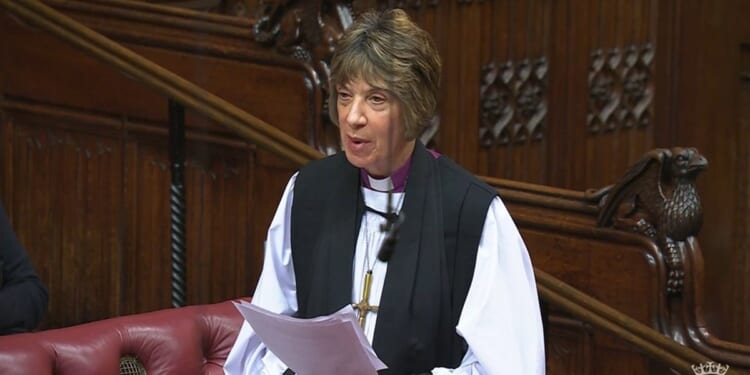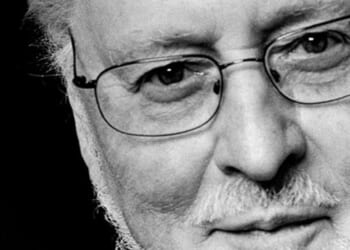PROPOSED changes to prison sentences are driven by politics and “pandering to public opinion”, and fail to look at the bigger, longer-term picture, the Bishop of Gloucester, the Rt Revd Rachel Treweek, has said.
She was addressing the House of Lords on Wednesday during the Second Reading of the Sentencing Bill, which seeks to reduce the prison population by increasing the use of community orders and suspended sentences, including harsher restrictions and more intensive supervision.
The Minister of State for Justice, Lord Timpson, told peers that this would bring stability and sustainability to prisons and to a criminal justice system “buckling under insurmountable pressure”.
Bishop Treweek, who is the Church’s lead bishop for prisons, expressed dismay that the focus of the Bill was the crisis of prison overcrowding. “Surely our long-term vision and big picture is not simply about more prisons or even decent prisons, but ultimately about strengthening communities so that people flourish in a network of healthy and safe relationships,” she said.
“There needs to be scope to be attentive to the underlying reasons for people’s behaviour, not least in an endeavour to break the cycle of reoffending and fractured communities which is costly: physically, emotionally and financially.”
The Bishop also expressed concern that recommendations of the Goake independent review, published in May, had been selected piecemeal.
“The review found that ‘punishment . . . has been given disproportionate weight and . . . there has been insufficient focus on reducing crime.’ It stated that custody should be ‘a last resort’. We are failing to ask what will enable a reduction in reoffending in the individual and bring transformation not only for them but for those who are impacted by their choices.
“Creativity with community sentencing could be life-changing, but sadly, even the proposed changes are set within such a punitive framework and tone. This is pandering to public opinion, not changing it.
“Measures to name-and-shame people completing unpaid work as part of their community sentence need greater scrutiny. I am sure that the last thing the Government would intend is harmful consequences for thousands of children and young people whose parents are completing their sentence.”
Bishop Treweek would be seeking amendments to the Bill that would define in legislation the purpose of imprisonment, she told the House. “In recent days, we have seen, yet again, intense media and political attention on prisons, but we need to reduce the political heat and seek cross party solutions,” she said.
“We must shape public opinion, not follow it. Is the Minister prepared to face down the media on matters of principle and evidence?”
Furthermore, there was nothing in the Bill to give assurance that the planning and management of the overall prison population was going to be significantly better than it was now, she said.
“We have failed to articulate the big aim and clarify what good would look like for victims, offenders, families and wider society in the long term. If we had a well-functioning prison system with good headroom and capacity, lower rates of violence and self-harm, and people coming out of prison less likely to offend than when they went in, this Bill might have been sufficient. Instead, it is a long way from the radical and bold thinking that it is necessary to reset the appropriate use of prison.”
Justice and mercy were two attributes of God, she concluded, “who is in the business of reconciliation and transformation. If we allowed mercy and justice to truly dialogue, this Bill could be transformed. We need a joined-up public health approach to the criminal justice system that puts relationship front and centre.”
Responding, Lord Timpson said: “The evidence shows that those given a community order or suspended sentence reoffend less than similar offenders given a short prison sentence. We are following the evidence to reduce crime, leading to fewer victims and safer communities. I am also following the lead of the previous Government, who introduced this measure in their Sentencing Bill.”

















